When selling or buying a vehicle in the state of New Hampshire, you will need to have a New Hampshire Vehicle Bill of Sale. This isn’t mandatory, but it acts as legal proof of the selling agreement. It is also used as part of the registration process of the vehicle by the buyer, in order to prove that they are the new owner at the Department of Motor Vehicles. It is also a requirement as stated in New Hampshire’s code RSA 261:148 III.
This bill of sale does not need to be notarized, however, it will need the signatures of both the seller and the buyer. You may also need to provide an Odometer Disclosure Statement (Form TDMV-12) if the vehicle is under 16,000 pounds and under 10 years old.
Free Forms Available
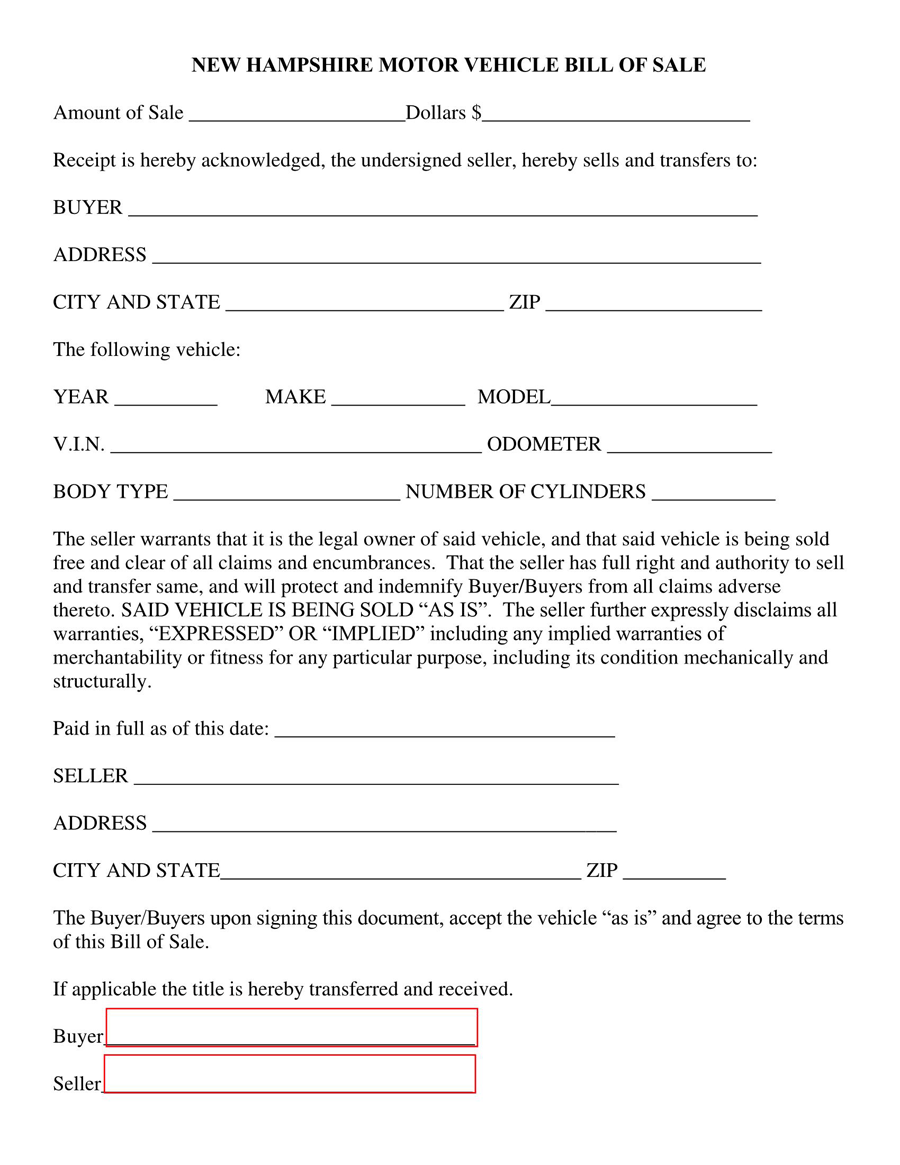
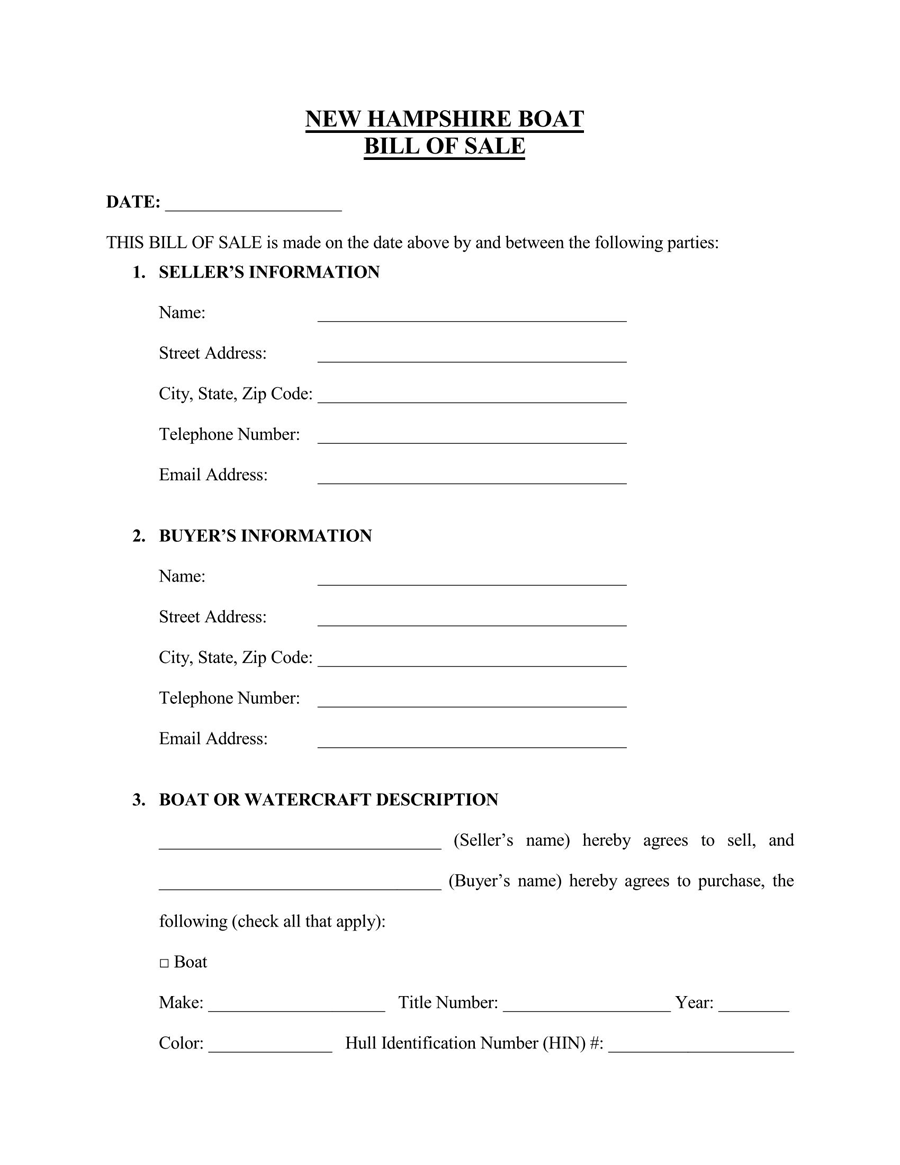
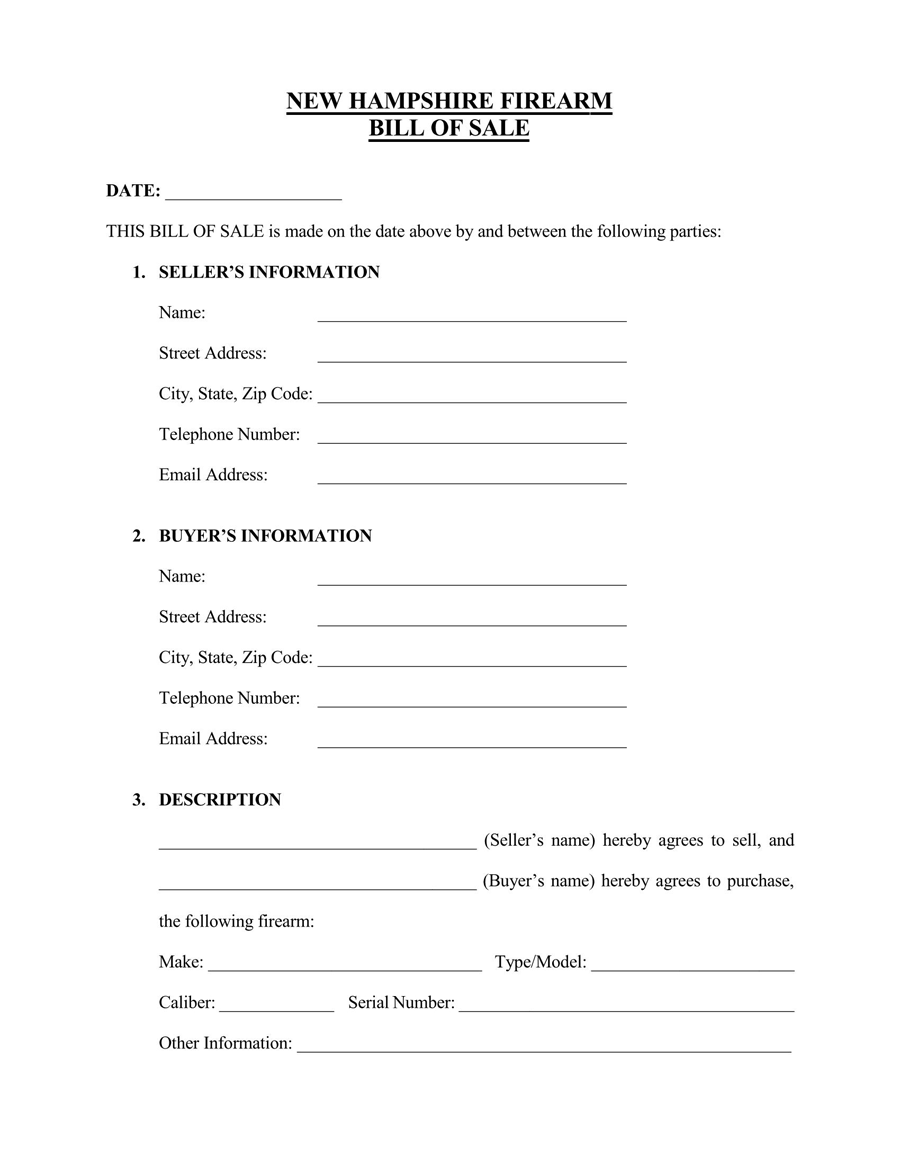
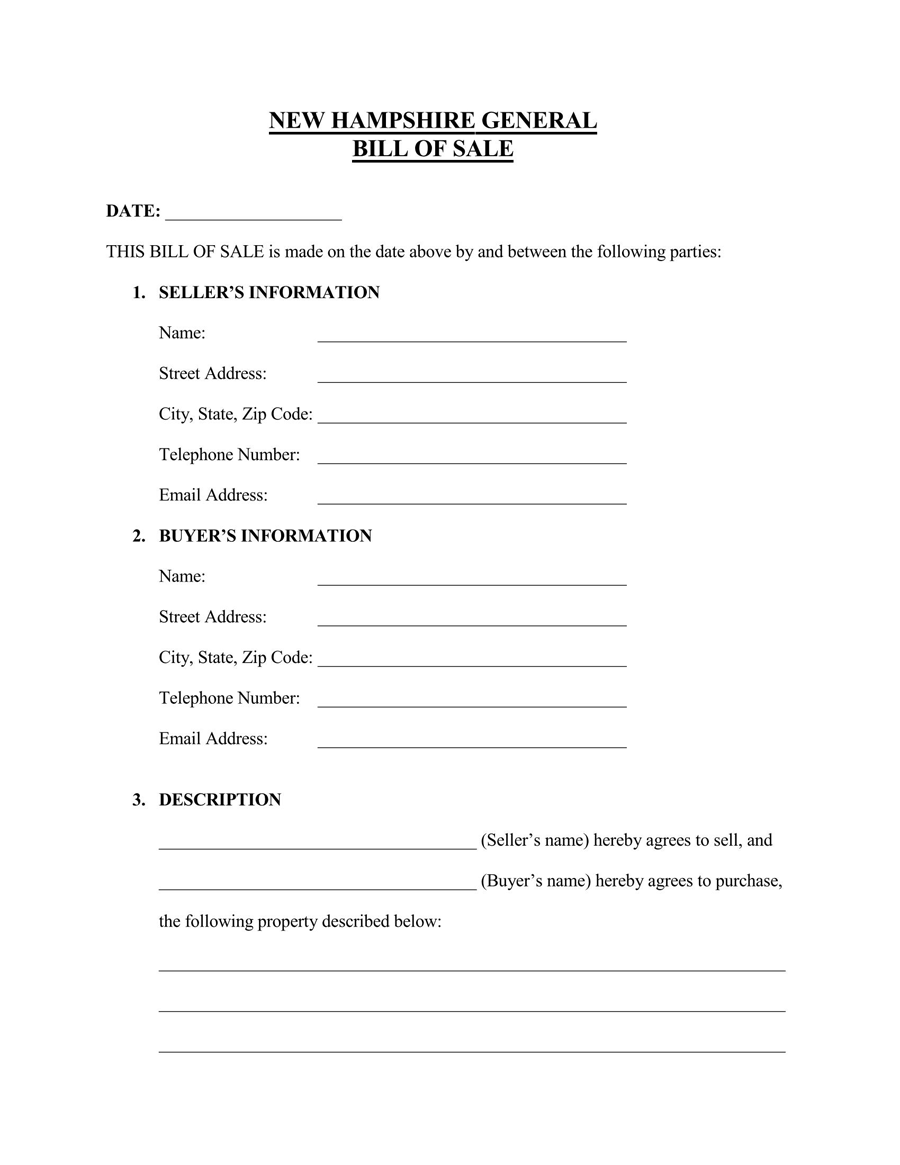
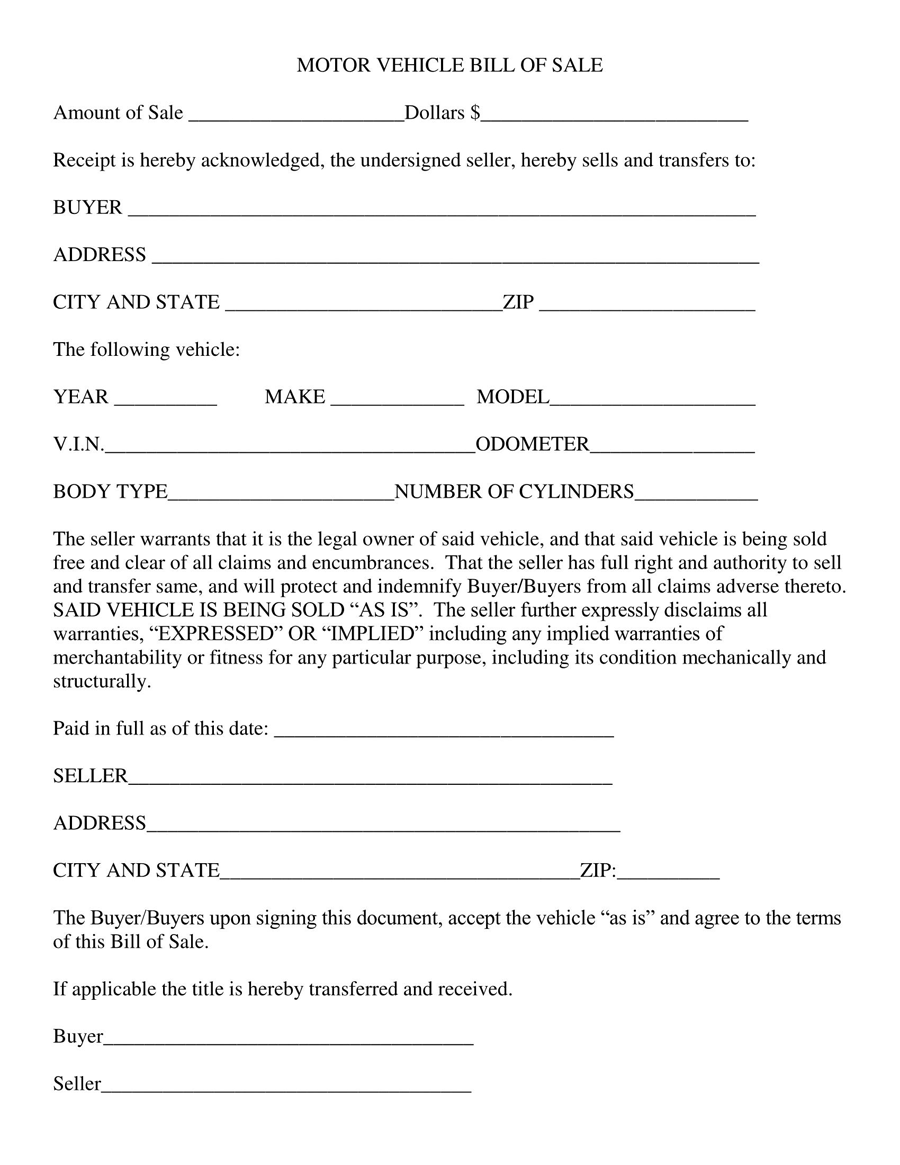
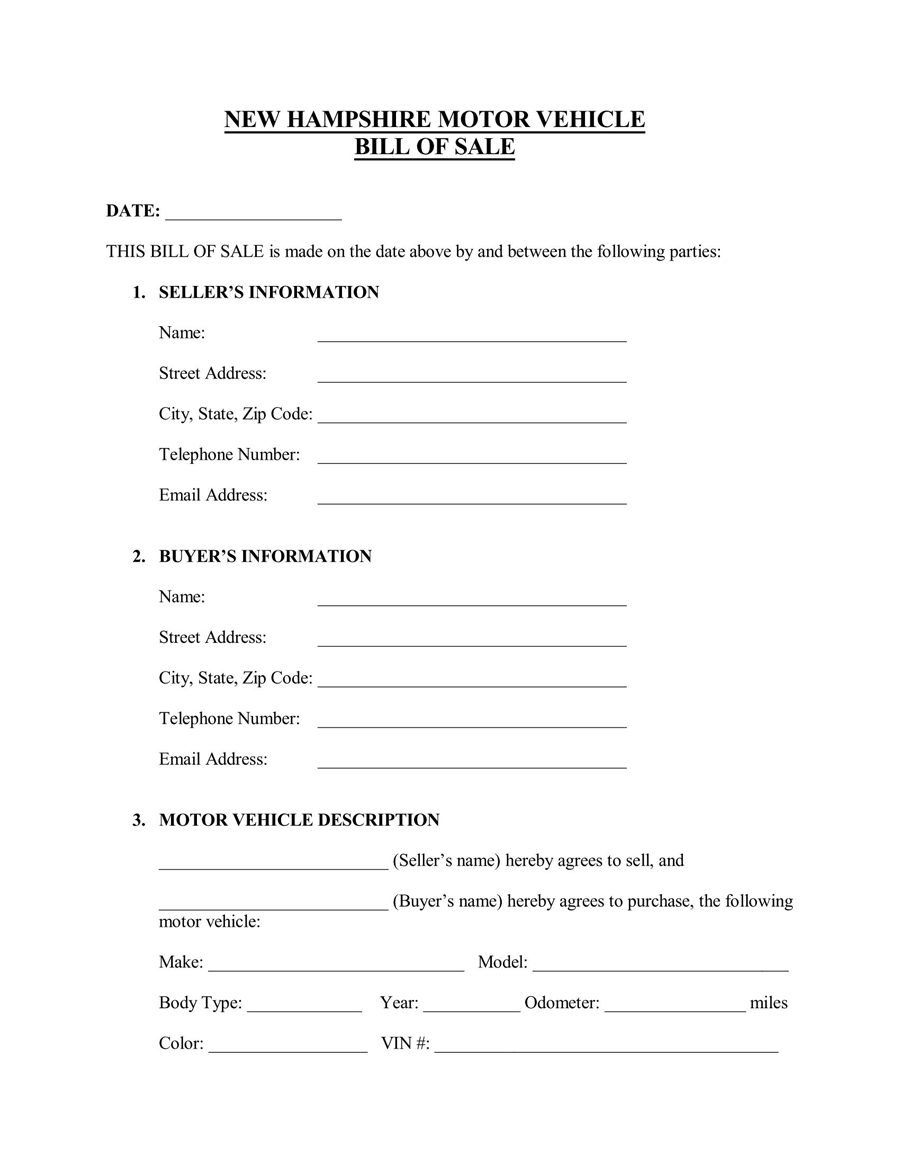
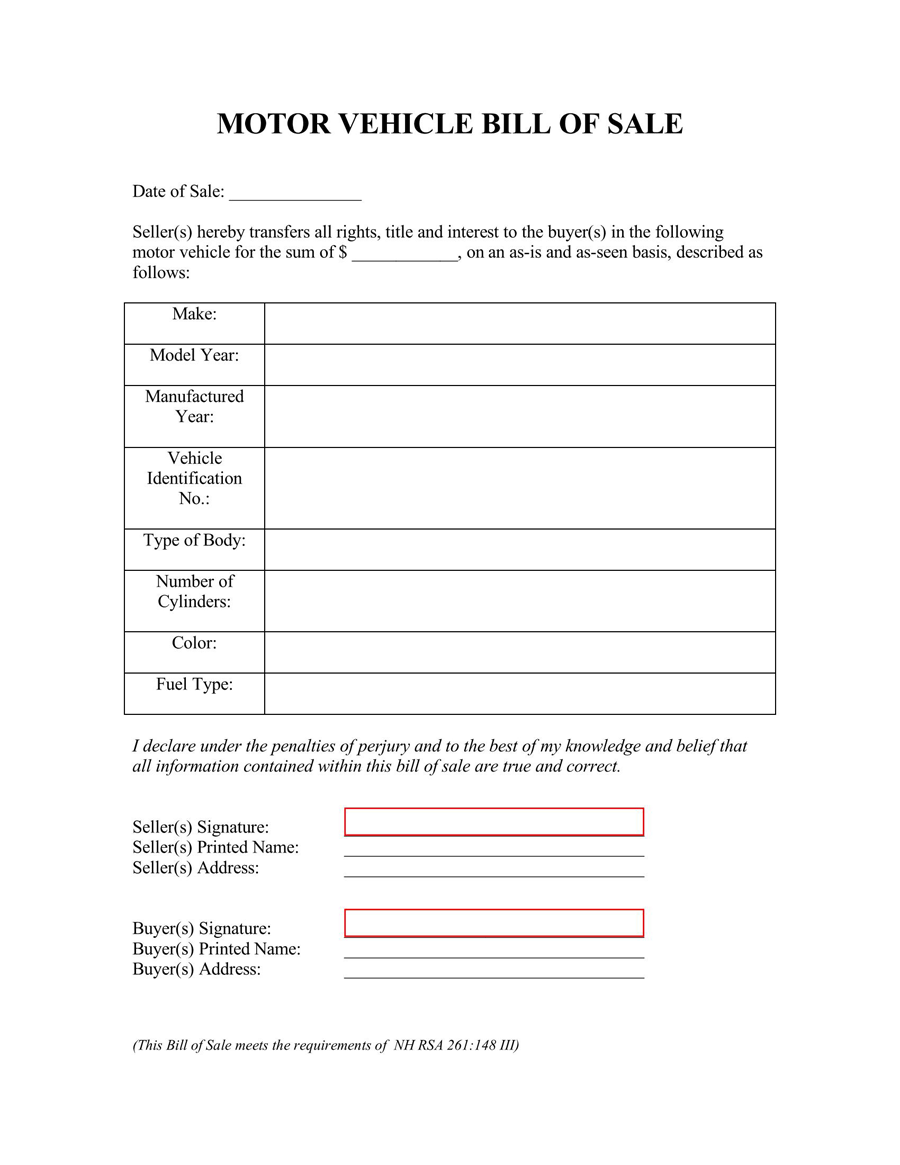
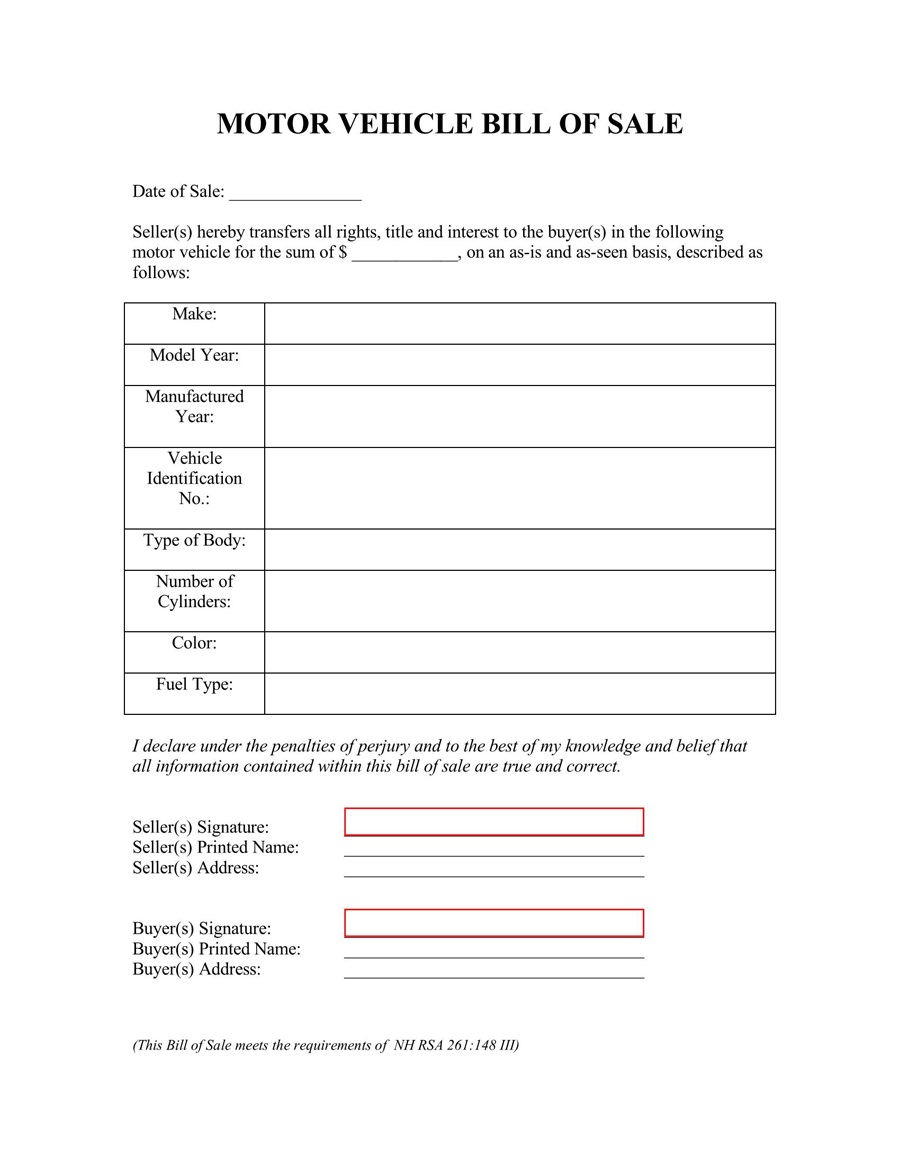
Creating a New Hampshire Bill of Sale
The New Hampshire DMV provides its own version of a Vehicle Bill of Sale that you can use, or you can create your own.
However, the bill of sale must have these required details:
- The date that the sale took place
- Details about the vehicle must include the make, model, color, year, number of cylinders, VIN, and body type.
- The full legal names of both the buyer and the seller
- The full legal addresses of both the buyer and the seller (PO boxes are not allowed)
- The signatures of both the buyer and the seller
Registering a Vehicle in New Hampshire
In New Hampshire, you have 60 days from the time you have moved to the state or have made your purchase, to register your vehicle. Registration renewal is every year and you can renew your registration at your local city or town clerk’s office.
There are 2 steps to the vehicle registration process. To start the registration process, you will need to visit your city or town clerk’s office. You will need to have proof of residence and the title certificate of the vehicle and will be required to pay for state and town fees. You can get more details from the New Hampshire’s government website on Selling and Purchasing a Vehicle.
The second step of the registration process takes place at your local DMV office. You can find more details on the DMV website.
You will need to bring the following documents to the DMV:
- A valid and current driver’s license
- Completed New Hampshire Bill of Sale
- Completed Odometer Disclosure (Form TDMV-12)
- The vehicle’s Certificate of Title. If the title is not available or has been lost, you can request to have a duplicate (Form TDMV18)
- Funds to cover State Registration Fees and Town/City Registration Fees
- If you are registering the vehicle for another person, you will need to complete a Vehicle Power of Attorney form (Title 5).
- In some situations, you may need to provide a VIN Verification (Form TDMV-19a)
If your vehicle is from out of state, you will need to provide a Manufacturer’s Statement of Origin. While some states require proof of insurance when registering a vehicle, the state of New Hampshire does not. The only time proof of insurance is needed is if there have been vehicle-related offenses. You can view the requirements for Form SR-22 here.
Vehicle Inspections and Emissions Testing
New Hampshire requires all registered vehicles to have a safety inspection within 10 days of being registered. Once registered, you are required to have an inspection done annually, within 10 days of renewal (which is usually at the end of the vehicle owner’s birth month). Inspections can be done at any licensed state inspection station or at an authorized automobile dealer in New Hampshire. Vehicles that are under 20 years old will need to have an OBD test (Onboard Diagnostics) during the inspection test, which will look at the vehicle’s emissions.












